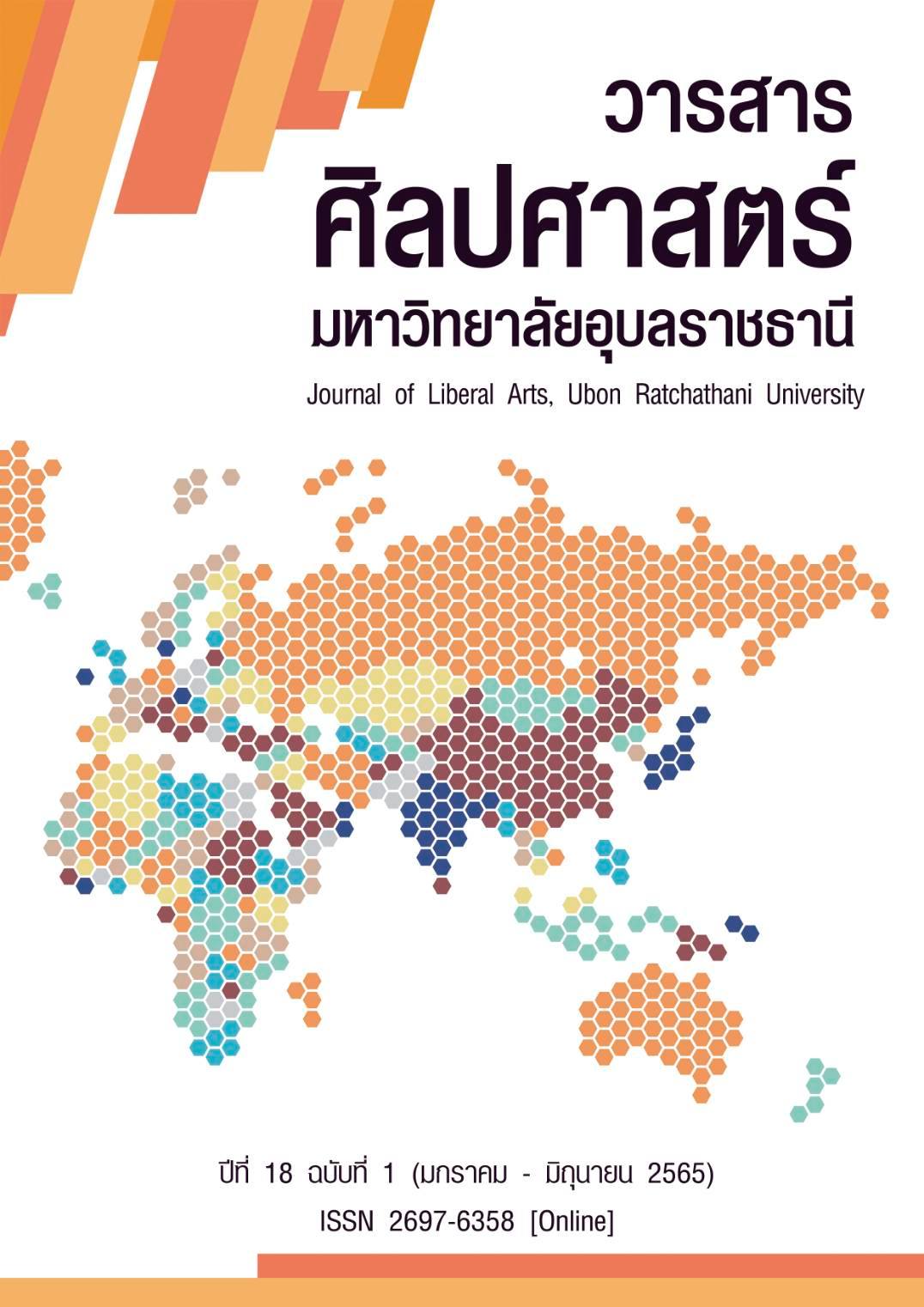การเลือกปฏิบัติทางเชื้อชาติและการนิยามตัวตน ของคนไทยเชื้อสายอินเดีย
Main Article Content
บทคัดย่อ
การถูกเลือกปฏิบัติจากคนไทยส่งผลต่อความรู้สึกเชิงลบและความสับสนในตัวเองของคนไทยเชื้อสายอินเดีย บทความนี้ทำความเข้าใจว่าการเลือกปฏิบัติทางเชื้อชาติส่งผลต่อการนิยามตนเองของคนไทยเชื้อสายอินเดียได้อย่างไร โดยใช้ทฤษฎีจิตสำนึกสองด้านของ William Edward Burghardt Du Bois งานวิจัยนี้ศึกษาการรับรู้ตนเองของคนไทยเชื้อสายอินเดียในมิติของความรู้สึกเป็นส่วนหนึ่งกับสังคมไทย การครอบครองสถานะคนไทยและคนอินเดีย และการนิยามตนเอง การวิจัยเชิงคุณภาพนี้เก็บข้อมูลจากการสัมภาษณ์เชิงลึกแบบออนไลน์จากคนไทยเชื้อสายอินเดียจำนวน 8 คน
ผลการศึกษาชี้ให้เห็นว่า ผู้ให้สัมภาษณ์ทุกคนถูกเลือกปฏิบัติจากคนไทย การเลือกปฏิบัติทำให้พวกเขามองว่าตนเองแตกต่างและเป็นคนนอกอันทำไปสู่ความรู้สึกเชิงลบ การเลือกปฏิบัติจึงเปรียบเสมือนม่านที่แบ่งแยกคนไทยเชื้อสายอินเดียออกจากคนไทย คนไทยเชื้อสายอินเดียมักรู้สึกสับสนทางตัวตนจากการรับเอาทั้งความเป็นคนอินเดียและคนไทยไว้ด้วยกันที่เรียกว่าจิตสำนึกสองด้านและความรู้สึกเป็นสองด้าน พวกเขาต่างตอบสนองต่อความสับสนนั้นด้วยการนิยามตนเองว่าเป็นคนไทยเพื่อกลบเกลื่อนความเป็นอินเดีย เป็นคนไทยเชื้อสายอินเดียเพื่อแสดงออกถึงความเป็นคนไทยและรากเหง้าอินเดีย และเป็นคนเพื่อหลีกเลี่ยงการตัดสินตนเองด้วยเชื้อชาติ
Downloads
Article Details

อนุญาตภายใต้เงื่อนไข Creative Commons Attribution-NonCommercial-NoDerivatives 4.0 International License.
เอกสารอ้างอิง
Ayuttacorn, A., Svetamra, A., and Santasombat, Y. (2020). Indian Community in Chiang Mai: Identity, Religion and Trade Network. [in Thai]. Chiang Mai: Indian Studies Center, Chiang Mai University.
Crawford, T. and Bohan, C. H. (2019). The Double Consciousness of African American Students Who Desegregated Atlanta Public Schools. The Journal of Educational Foundations, 32 (4), 142-165.
Ghasemi, M. (2020). A Study of Double Consciousness in Lauri Lemberg’s St. Croix Avenue and Paula Ivaska Robbins’ Below Rollstone Hill. Journal Immigrants & Minorities Historical Studies in Ethnicity, Migration and Diaspora, 38 (3), 255-272.
Itzigsohn, J. and Brown, K. (2015). “Sociology and the theory of Double Consciousness W. E. B. Du Bois’s Phenomenology of Racialized Subjectivity”. Du Bois Review: Social Science Research on Race. United Kingdom: Cambridge University Press.
Jamila, A. (2021). The Phenomenon of Double Consciousness and its Effects on the International Students at Universities in the United States: A Phenomenological Study, Doctor of educational leadership, University of St. Thomas.
Kamwang, A. (2011). “Sikhs in Siam and Lanna ; History of Settlement, Religion and Trading”. [in Thai]. Journal of Humanities and Social Sciences Khon kaen University, 28 (2), 67-94.
Kanato, M. (1993). The Settlement Pattern of Indians in Chiang Mai City. [in Thai]. M.S. Geography, Chiang Mai University.
Kimprakone, P. (2008). Interracial communication between Thais and Indian-Thais. [in Thai]. Master of Arts (Speech Communication and Performing Arts), Chulalongkorn University.
Pongitthidech, P. (2019). Sikh identity and action. [in Thai]. Bachelor of Arts (Anthropology), Silpakorn University.
Prathet Ubon. (2021, 7 June). Khaek ban diao kan (Thai Sikh Ubon Ratchathani). [in Thai]. Prathet Ubon. Retrieved November 2, 2021, from https://youtu.be/Elocr3rtYdQ.
Rice Media Thailand. (2021, 23 May). Not Thai Enough. [in Thai]. Rice Media Thailand. Retrieved November 2, 2021, from https://www.facebook.com/ricemediathailand/videos/3572964466177582/.
Thorpe, C. et al. (2015). The Sociology Book. London: Dorling Kindersley.
Interviews
Ah. Islamism. Interview. December 7, 2021.
Al. Sikhism. Interview. December 8, 2021.
Bee. Buddhism. Interview. December 19, 2021.
Cindy. Namdhari. Interview. December 14, 2021.
Haroon. Brahmanism-Hinduism. Interview. December 5, 2021.
Moni. Brahmanism-Hinduism. Interview. December 5, 2021.
Rome. Sikhism. Interview. December 6, 2021.
Yash. Brahmanism-Hinduism. Interview. December 12, 2021.


